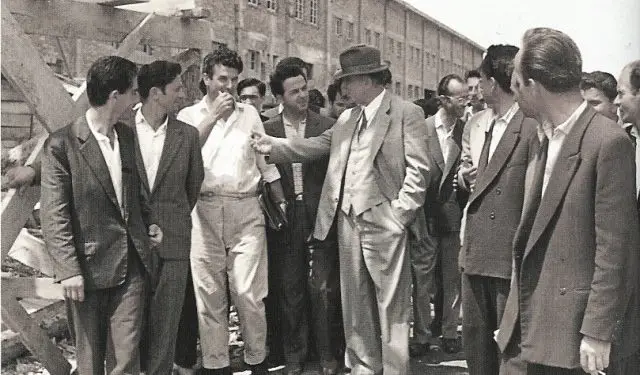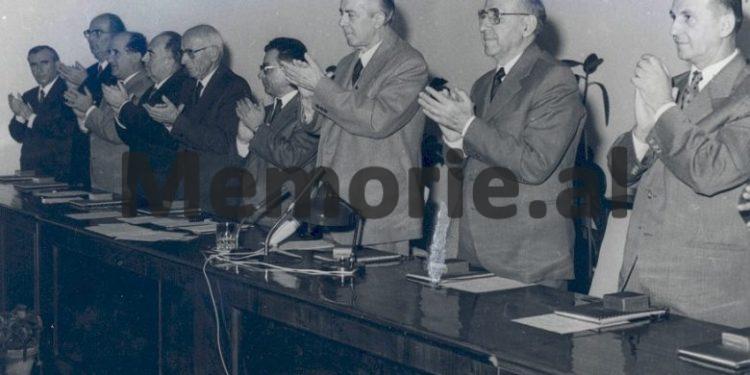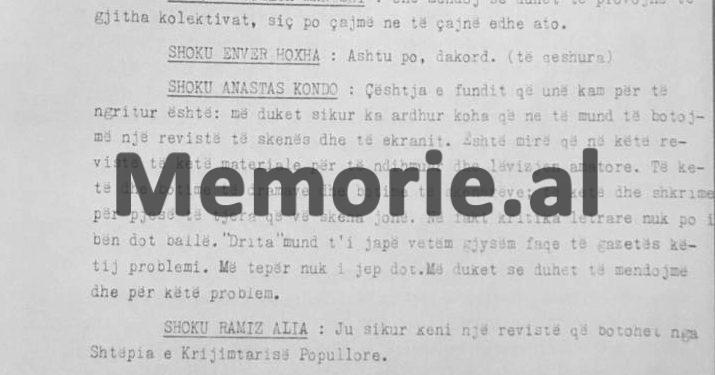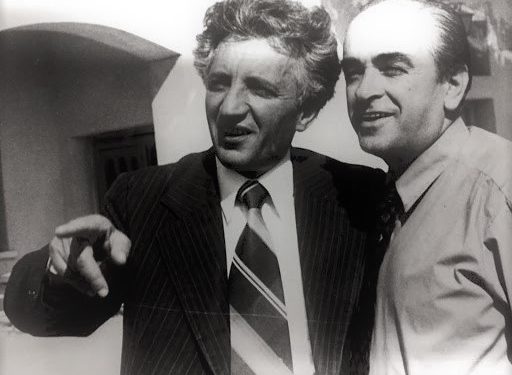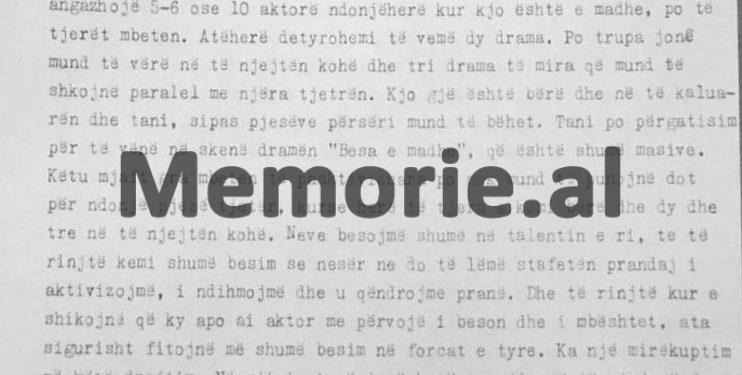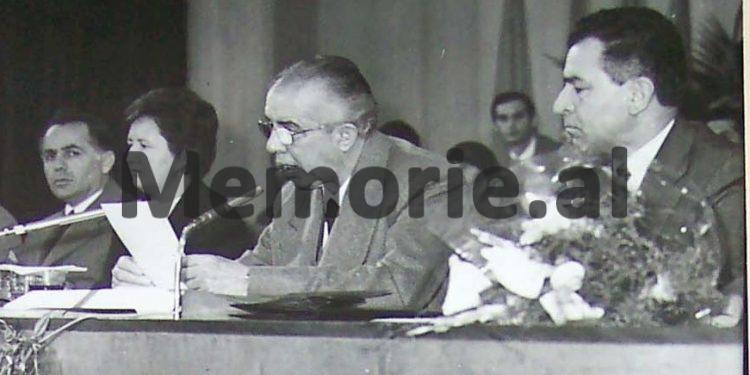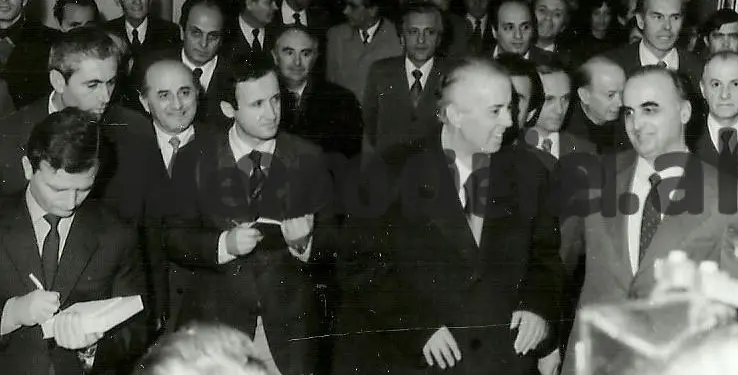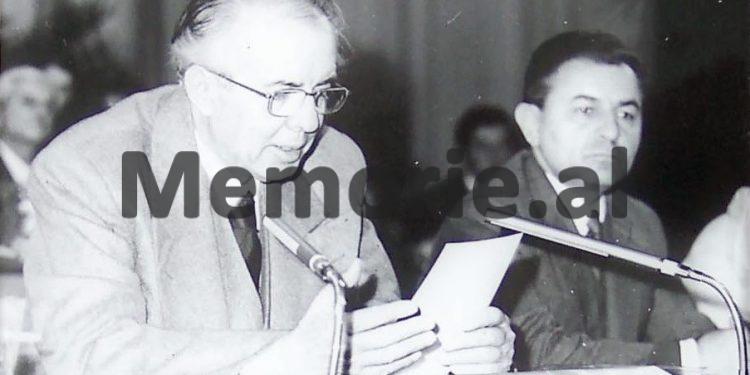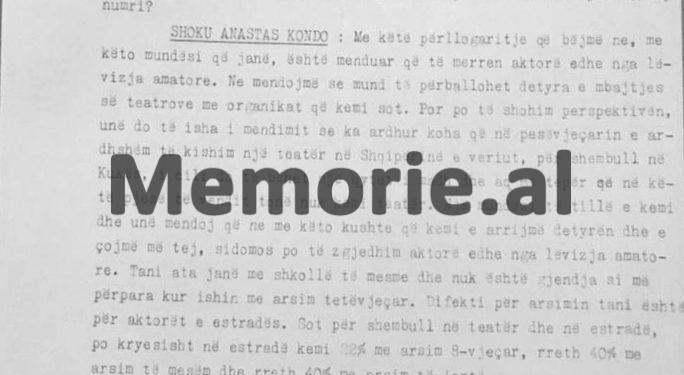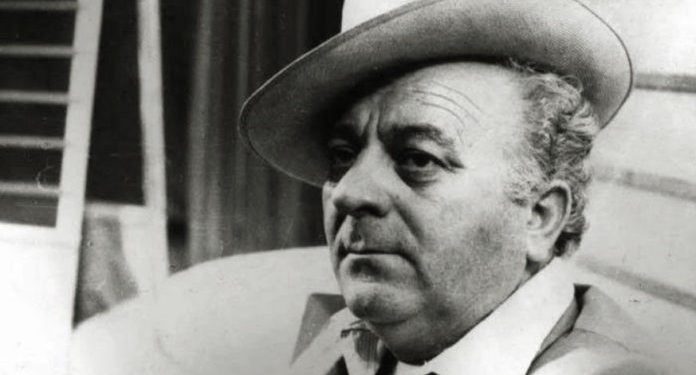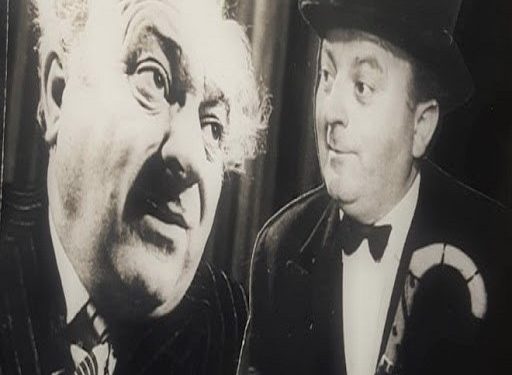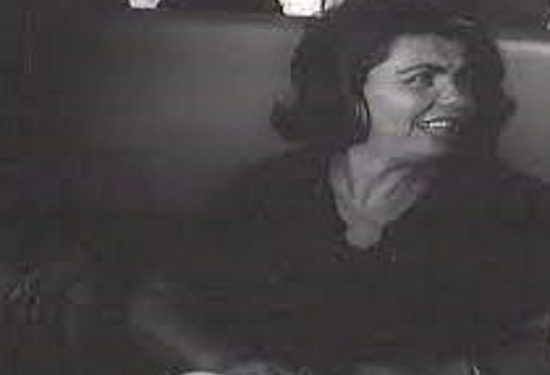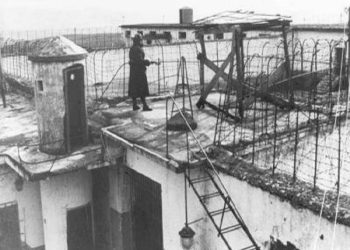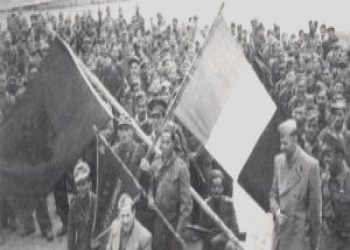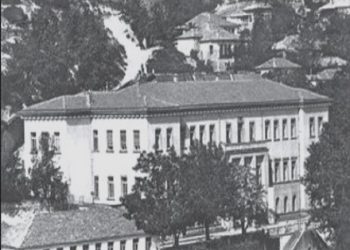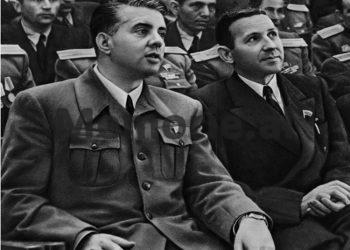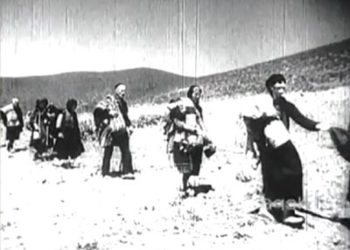Dashnor Kaloçi
The third part
Memorie.al publishes some archival documents extracted from the Central State Archive in Tirana (fund of the former Central Committee of the ALP), where there is a record of the meeting of the Secretariat of the Central Committee held on May 25, 1978 , on the topic: “On a situation and on some problems that arise to increase the ideo-artistic level of professional theater and variety”, which was directed by Enver Hoxha, which was also attended by Ramiz Alia, secretary of the Central Committee covering propaganda , art and culture, Pilo Persiteri, candidate of the Politburo and Director of the Combine Tractor Factory, “Enver Hoxha”, Deputy Minister of Education and Culture, Anastas Kondo and President of the League of Writers and Artists of Albania, Dritëro Agolli. The full minutes of that meeting led by Enver Hoxha, where the famous actor and director of the Albanian theater and cinematography, Pirro Manit, the well-known actress of the National Theater, Violeta Manushi, the professional pop actor were also invited and participated. Of the city of Shkodra, Tano Banushi, etc.
“Our theater has a great experience in collaboration with actors – playwrights. Whenever this work was done well, there was a harmony between the author and the theater director, always the results were positive. From this warm cooperation, concrete and not in general, we have left or will remain many dignified works in its golden fund of our scene, starting from the first works such as “Our Land”, “Family of fisherman ”,“ Cuca e maleve ”, etc. I mentioned some of these works which are quite serious. This cooperation, especially recently, has become even stronger, more concrete. In our theater we have a lot of staff who do not work in the theater, but deal with writing and are writers. They not only help us with their works, but they also come to the theater, got acquainted with the process of staging, get acquainted with the laws of the stage, which is more than necessary for the author. We trusted our young people with courage, we felt very close to the whole team, the organization, we old directors and there really were results. For example, Dhimitër Pecani, not himself, m who successfully deputy on our stage, but he also went to Fier where he gave a beautiful play for the theater of Fier. In addition, there are a large number of television directors, such as Albert Minga who has emerged from television, the People’s Theater, as well as Vladimir Prifti and Agim Qirjaqi. So we have to trust the “conductor’s stick” of the director, the young boys to come forward and show talent, because our people are very talented ”
This is what the well-known director of the Pirro Mani Theater said in his discussion, in one of the meetings of the Secretariat of the Central Committee of the ALP held on May 25, 1978, which was chaired by Enver Hoxha, where they participated also Ramiz Alia, Pilo Peristeri, Anastas Kondo and Dritëro Agolli. In that meeting with the topic: “On a situation and on some problems that arise to increase the ideo-artistic level of the creativity of theater and professional variety”, in addition to Pirro Mani, participated the well-known actress of the People’s Theater, Violeta Manushi, actor of the professional stage of the city of Shkodra, Tano Banushi, etc.
For more than what was spoken and discussed in that meeting by Enver Hoxha, Ramiz Alia, Anastas Kondo and Dritëro Agolli, as well as by the guests: Pirro Mani, Violeta Manushi and Tano Banushi, the archival document in question introduces us with the minutes of that meeting of the Secretariat of the Central Committee of the ALP, which Memorie.al publishes for the first time and in full in some issues of the dossier section.
Followed by the last number
Minutes of the meeting of the Secretariat of the Central Committee of the ALP, May 25, 1978
“ON THE SITUATION AND ON SOME PROBLEMS THAT ARISE FOR THE INCREASE OF THE IDEOARTISTIC LEVEL OF THE PROFESSIONAL THEATER AND POETRY CREATIVITY”
COMRADE ANASTAS KONDO: In preparation for this meeting I also read to see how we are compared to the world in terms of the number of theaters. It turns out that today we have a theater for one hundred thousand inhabitants. We have third professional theaters and 15 estrada. We have the Opera and Ballet Theater, the State Ensemble of Folk Songs and Dances, the Soldier Variety, which become a total of 25 troupes, a very large number compared to the population. We also have 25 puppet theaters, which play a very big role in the education of children. We are seeing it even now in the meeting of theater troupes that we need to put more force on the development of theaters and pop music, so we draw conclusions that our work as a minister and the work of the Party to increase the number of plays should be strengthened. If we start from the experience of Kinostudios that in 60 scenarios, from the selection only 20 remain to be made into a film, in dramas a ratio is more or less such that in 50 dramas, 20-25 should come out good to were staged.
I wanted to emphasize something else: I think that a factor that has had a positive impact on the theater, is the work of his collaboration with Kinostudio and Television. It seems to me that the Theater and Television with Kinostudio will also benefit from this cooperation. It is true what Dritëroi says, that we anticipate making 25 films a year, starting next year. Yes, it is true that there are countries in the world, even neighboring countries, such as Greece which makes 24 films and Yugoslavia 18 films, while Norway 7 and Sweden 12. So do other countries.
COMRADE DRITËRO AGOLLI: China produces only two films a year.
COMRADE ENVER HOXHA: And more for the river (laughter).
COMRADE ANASTAS KONDO: I think the theater will be further strengthened, and this task can be achieved, because as all friends said, here we now have a base, but it happens that sometimes by engaging friends in movies, the theater is damaged a bit , that film always gets the best theater actors. This is where we need to show the utmost care and we can say that this is one of the weaknesses of our work, so we need to fix this issue as best we can. For example, of the 311 actors we have in theaters over the years, 83 have been engaged in films. It should be noted that fellow filmmakers have the merit of engaging many amateurs, as not so much for amateur films.
COMRADE RAMIZ ALIA: Regarding the preparations of the theater staff, how were the predictions made?
COMRADE ANASTAS KONDO: We think about the preparation of the staff.
COMRADE ENVER HOXHA: Two, three.
FRIEND ANASTAS KONDO: At the Higher Institute of Arts
COMRADE RAMIZ ALIA: How do you prepare them at the Institute?
COMRADE ANASTAS KONDO: Since last year, the admission to the Higher Institute of Arts by 30 students per year for actors has started.
COMRADE RAMIZ ALIA: What years did you accept?
COMRADE ENVER HOXHA: Last year the Higher Institute of Arts admitted only two students for piano.
COMRADE ANASTAS KONDO: No, it is about actors.
COMRADE ENVER HOXHA: Good, good.
COMRADE ANASTAS KONDO: We have accepted 30 actors for years. We did this because we will need actors in 1982 when these are over.
COMRADE RAMIZ ALIA: Admissions for theater actors have increased a bit, while for pianists is what you say, Comrade Enver.
COMRADE ANASTAS KONDO: Driëtroi also said, we think that these actors are not only for theater, but also for pop. There have been some sort of concepts here.
COMRADE RAMIZ ALIA: Well, is the increase of this number foreseen?
COMRADE ANASTAS KONDO: With this calculation that we make, with these opportunities that are, it is intended to take actors from the amateur movement. We think that the task of maintaining theaters can be afforded with the organics we have today. But if we look at the perspective, I would be of the opinion that the time has come for us to have a theater in Northern Albania in the next five years, for example in Kukës, which will become a big city and even more so that in this part of our country we have no theater. We have such an opportunity and I think that with these conditions we have we achieve the task and take it further, especially if we choose actors from the amateur movement. Now they are in high school and it is not the situation as before when they were with eight years of education. Shortcoming for education is now for pop actors. Today, for example, in theater and variety, but mainly in variety we have 22% with eight-year education, 40% with secondary education and about 40% with higher education.
In the meetings we have had with all the friends of the theaters, with the playwrights, with the directors, with the actors, it turns out that it is a great truth that the Party Committees are dealing well with the problems of the theater, especially that of Tirana, Korça, Shkodra, Vlora, these Party committees are very well engaged. Core organizations are also following this issue very well.
COMRADE ENVER HOXHA: I think that Dritëroi is not of this opinion, no, it is not and it is very good that it is not.
COMRADE DRITËRO AGOLLI: The Party Committees of the districts are taken, but they do not see this problem very widely.
COMRADE ANASTAS KONDO: We have the biggest burden on these issues. We have in the first place the problem of repertoire. If Tirana has solved it, the others have not solved it yet.
COMRADE ENVER HOXHA: Look how your friend Violeta is making her lips (laughs), that is, she does not think so.
COMRADE VIOLETA MANUSHI: I think that all collectives should try, as we are doing, to do the same.
COMRADE ENVER HOXHA: Yes, I agree (laughs).
COMRADE ANASTAS KONDO: The last question I have to raise is: it seems to me that the time has come for us to publish a sequel and screen magazine. It is good to have material in this interview to help the amateur movement as well. To have publications of plays and screenplays, to have writings for the other parts that our stage puts. In fact, literary criticism is failing to cope. “Drita” can only give half a page of the newspaper to this problem. You can not give more. It seems to me that we need to think about this problem as well.
COMRADE RAMIZ ALIA: Do you seem to have a magazine published by the House of Popular Creativity?
COMRADE ANASTAS KONDO: It’s a bulletin.
COMRADE RAMIZ ALIA: You can not transform it, enrich it?
COMRADE ANASTAS KONDO: We will do it, we can enrich it.
COMRADE RAMIZ ALIA: As long as this magazine is, why publish another one?
COMRADE ANASTAS KONDO: We also have that idea, this publication should not be just a bulletin for internal use, but it should be for a use of all.
COMRADE ENVER HOXHA: Good.
COMRADE TANO BANUSHI: Thank you
FRIEND VIOLETA MANUSHI: I have the honor to be a member of the artistic council and recently I have been following the variety shows more closely. I think this genre is neglected by the authors. If they do not have material written by the authors, they have nothing to do. In addition, it seems to me that the element that works with pop music, is not chosen in such a way that everyone is capable. I say this because it is a fact that there was a very wrong concept in those who made the cadre movement. This practice was followed: whoever did not do well in school or in the theater, was sent to the stage or to Kinostudio, and then there are those who have become film directors. Have they done art schools? So the responsibility for the element is very great in all of us. Now the public is not what it was 30 years ago, when we could serve everything. Now is the time to give up.
Secondly, there is the issue of aid that we have to give to Kinostudios. I think Kinostudios seems to help a lot because the film represents us abroad. It represents the work of our people, the work of our Party and should be helped with an understanding from both sides and with plans with perspective. This issue is closely related to the repertoire, when he has the repertoire in hand, then he knows which actors he will need. I say that this collaboration should be done and it should be done that these are necessary, the film is needed, and so are the others. For now and with as much strength as we have, I think we can face it, but always with an understanding that we do not “ride at each other’s expense”, that the theater has its plans and will respond to the audience, and so does the film has its own plans. Understandably these have been done and will be done.
COMRADE RAMIZ ALIA: Using many amateurs as well.
FRIEND VIOLETA MANUSHI: Yes, even with amateurs. They also have to work as we do, work with duplication, because duplication develops talents. It is necessary that Violeta Manushi will not always work, the assistants will also work, even when given the opportunity, the double comes to go to Kinostudio, while the other will work in the theater, so a more organized work will both the theater and Kinostudion always make us white-faced.
How to work with directors? We only have one director at the People’s Theater, Pirro Manin, we are a staff of 50 people. In this context, not everyone can commit, that a drama can engage, 5-6 or 10 actors sometimes when it is big, but the others remain. Then we are forced to put on two dramas. Yes our body can put at one time even three good dramas that can go parallel to each other. This has been done in the past and now, according to parts, it can be done again. Now we are preparing to stage the drama “The Great Faith” which is very massive. Here many women remain inactive but we can not work for any other part, and other times we have done two and three at the same time. We believe a lot in young talent, we have a lot of confidence in young people that tomorrow we will leave the baton to them, so we activate them, help them and stay close to them. And young people when they see that this or that experienced actor supports them, they certainly gain more confidence in their strengths. There is an understanding in this regard. In our bosom are four young directors who are very dignified. The latter is very young, he has not yet shown himself as an actor, but with his efforts, but with the help of the whole team, with the importance that the basic organization of the Party attaches, he has produced a part with a lot of dignity. So did Fatos (Haxhiraj) and others. I think this is how other theaters are known to operate. They are waiting and asking for a director. Where will these directors come from? From heaven? /Memorie.al
Continues in the next issue




